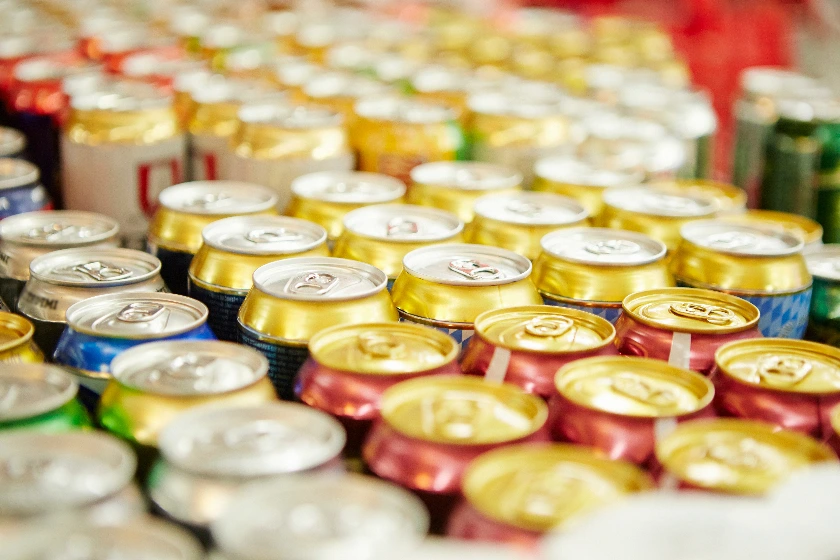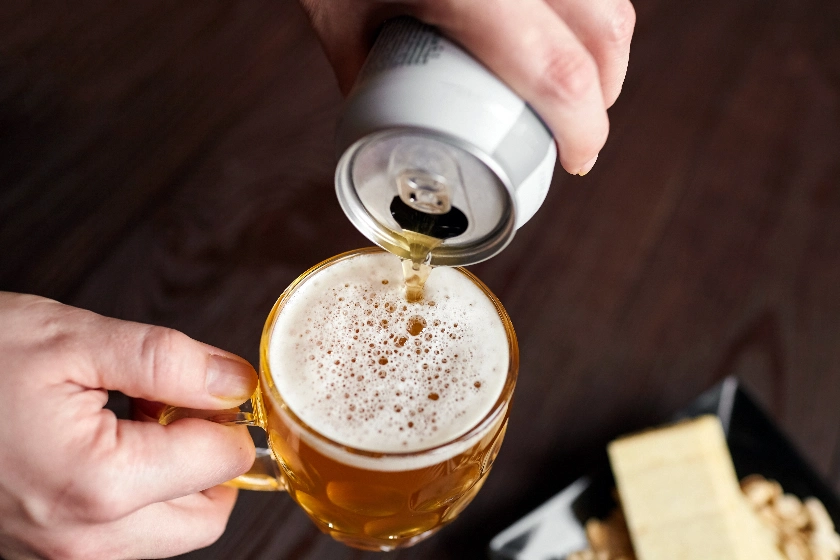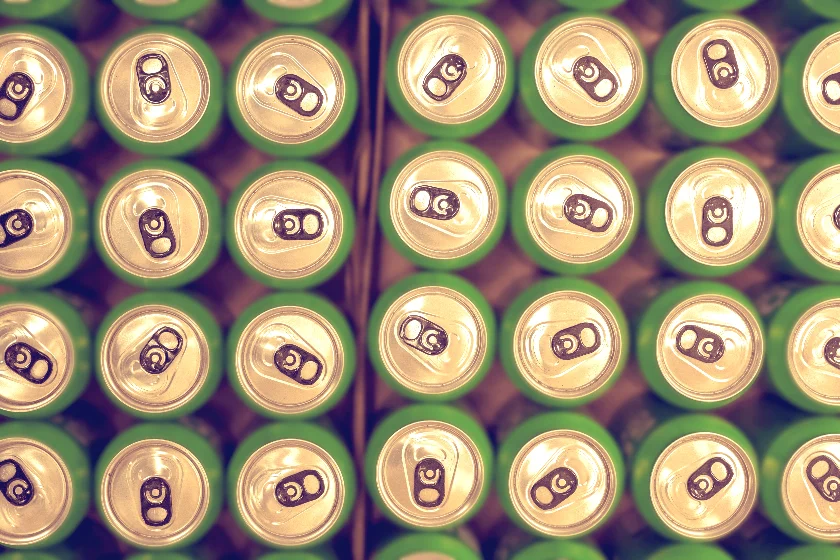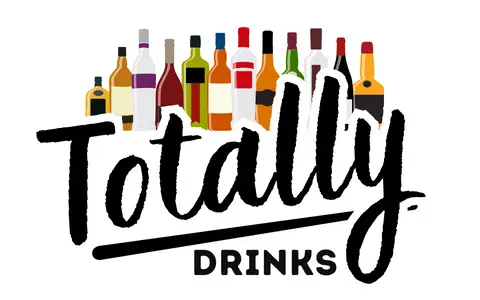Everyone’s had a pack of beers, and when you opened the packet, it’s clear someone dropped them. The cans are dented or bulging, and you’re wondering what will happen if you drink these beers. I’ve had the same concern about whether it’s safe for me to drink beer from a dented can.
Dented beer cans from being dropped or frozen are safe to drink soon after denting but check for spoilage of dented cans that have been stored any length of time. Discard beer cans that are bulging or excessively dented at the rim.
Beer cans bulge due to temperature changes, bacterial spoilage, and yeast fermentation. If you are unsure, pour the beer into a glass and check its appearance, smell, and taste for spoilage.
It’s pretty easy to spot a can of beer that’s hit something hard. Usually, the rim on the top of the can gets damaged or dented, and other parts may bulge. In most cases, the shape of the can is a little deformed, but the contents are unaffected. I’ve looked at when drinking from a dented can is safe.
To me, nothing says 'merica like drinking a dented can of beer. Happy 4th, everyone! pic.twitter.com/kbr7wpN42w
— Melanie Berger (@smelanie_bergs) July 4, 2013
Is It Okay to Drink Beer from a Dented Can?
The USDA confirms, if your can has only a tiny dent or bulge, it is likely safe to drink from, especially if the dent was made recently. You may want to pop your can in the fridge for fifteen minutes or so, or drum your fingers along the sides of the can, to avoid spray when opening.
However, if you find a can that is badly dented, you might want to consider throwing that beer away. You may also need to consider where the dent has occurred, as some areas might allow bacteria into your beer if a hole was made.
You will know quite quickly if the beer is “off” from its foul smell, cloudy appearance, and unusual taste.
Suppose the dent has affected the opening tab pull. In that case, I consider that a significant problem and would suggest not drinking from that can. However, most slightly dented beer cans should not be a food safety issue.
Consider washing cans before opening them, as swab studies show cans can have bacteria from dirt, rats, and bugs crawling on them from their time in storage.

What Happens If You Drink From A Dented Can?
Many are worried about the chance of botulism after drinking or eating food from a dented can. It’s very rare that a bulging or dented can signify botulism. Still, in reality, it’s a more evident sign that either the canning process wasn’t adequate or that a can has been dropped.
The fear of botulism comes from the many cases during the 1970s when canning regulations were not as good as they are now. These days, the chances of getting botulism from canned food or drinks are much lower.
So, what will happen if you drink from a dented can? Generally, nothing. A dented beer can usually comes from the can being crushed when it is dropped, and the beer inside is not affected by the dent.
Some people even like to purposely dent their cans to make them easier to hold. Yes, that’s right – denting your can to make it more ergonomic and improve your drinking experience is a thing. The dent can also help you know which drink is yours if you’re at a gathering or party.
Of course, if you’ve dented your can yourself, you know precisely how the dent got there, so you know your beer inside the can is safe.
What if you don’t know where the dent came from? What will happen then? Again it’s unlikely you will get food poisoning or botulism from a dented beer can.
Juul Osco went crazy with these bad boys. $3 for some slightly dented beer cans taped together can I get a hell yeah pic.twitter.com/ml1elD05Mg
— Big Tucson Dad (@BigTucsonDad) August 12, 2021
How Do You Know If A Dented Can Is Safe?
You will know a dented can is safe if you were present when it was dented. For example, if you dropped it or purposefully dented your can, you know that your beer is safe to drink.
Minor dents in the side of your beer can are unlikely to cause alarm. However, suppose the rims or the opening pull tab area are dented. In that case, it’s possible that microorganisms entered your beer can, and I would recommend disposal.
Another reason to avoid drinking from a can of beer is if the can has rusted or shows abnormal deposits around the dented areas.
- Related article: Is It Safe To Drink From A Dented Soda Can? (how soda differs from beer)
Why Is The Bottom Of My Beer Can Bulging?
Sometimes it’s more than just a tiny dent in your beer can that worries you. What about significant dents, leaks, and bulges?
A bulging can of soda or beer is often an indication that the contents were frozen at some point. When the drink freezes, the water molecules expand, pushing out the weakest areas of the can.
The bulge remains when your drink returns to a lower temperature, even though the contents return to their standard volume. In most cases, your beer isn’t going to stand nicely on a flat surface if the bottom has bulged out.
So if you accidentally froze your beer in an attempt to cool room temperature beer, then you know your beer is safe to drink.
There are other reasons a beer can might bulge, especially from microbreweries, due to too much carbonation. This carbonation happens when beer with active yeast is packaged, and the yeast begins to ferment.
The fermentation process releases more CO2 into the beer, but the container cannot contain all this new carbonation and begins to bulge.
This fermentation process can also be caused by spoilage microorganisms present in the beer. Bacteria and yeast cultures give off gas when they are multiplying. You’ll be able to tell if your beer is spoiled.

Should I Drink from a Bulging Beer Can?
If you know the bulge in your can was caused by a freezing process, I wouldn’t worry – it’s likely to be safe to drink from the can.
However, if you bought a can and discovered it is bulging, I would recommend tossing the can for two reasons:
- If post-canning fermentation caused the bulge, you would have no idea of the actual alcohol content of the beer. The active yeast could have doubled the alcohol volume for example.
- The excess carbonation might have come from bacteria, not yeast, and the beer will likely have spoiled.
Suppose beer cans are left long enough with this fermentation process. In that case, they will eventually reach a point where they can no longer contain the expanding gas and explode!
Beer cans are designed to withstand changes in pressure caused by fluctuating temperatures and carbon. However, these explosions are possible if the cans are not accurately filled or the beer is adequately pasteurized.
Sometimes excessive heat and humidity changes where the beers are stored can bulge the cans. While the beer might be okay, I would not risk drinking from bulging cans if you don’t know how the bulging was caused.

Can Botulism Grow In Beer?
Beer brewed commercially is under strict conditions and environments which make botulism very unlikely, but homebrewed beer can be a risk.
The food-borne illness botulism is no joke – it’s a toxin released by the bacteria Clostridium botulinum which attacks the nerves. Botulism can make it hard to breathe, cause paralysis, and in some cases, result in death.
It’s pretty rare for these bacteria to make people sick. Typically, they produce a spore coating which helps the bacteria survive in even extreme conditions. It’s only under certain conditions that this spore coating becomes the lethal toxin we’re worried about.
These conditions include environments that have low or no oxygen, low acid, low sugar, and low salt. The acids, salts, and sugar act as preservatives. Specific temperature and humidity range also increase the chance of the toxin developing.
Unfortunately, it’s most likely to meet these conditions when people ferment, preserve, and can their food at home. And homebrewed beers fall into this category.
Good homebrewing practices can negate the chances of botulism. Standard brewing methods create oxygen levels that inhibit the growth of botulism. During fermentation, acid is created, which also helps stop the bacteria from producing toxins.
The best practices to prevent botulism in homebrewed beer is to chill it, keep it well-oxygenated, and pitch it with yeast.
Conclusion
Hopefully you know all about dented beer cans and when they are safe to drink now.
Minor dents on the side of the can are rarely an issue. If you’re uncertain, or the beer can has significant bulges or dents, especially near the rim and opening, you should discard it.
You are unlikely to get botulism from a dented can of beer due to the fermentation, yeast, and canning process. However, a bulging can may mean the beer has continued fermenting or that microorganisms have spoiled the contents.
